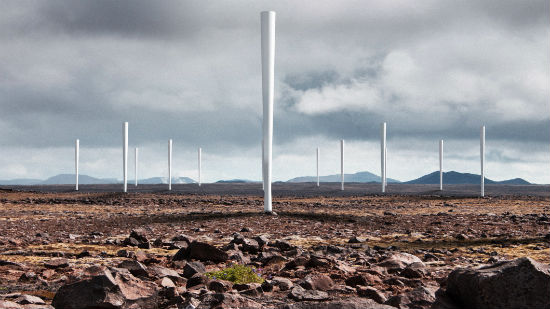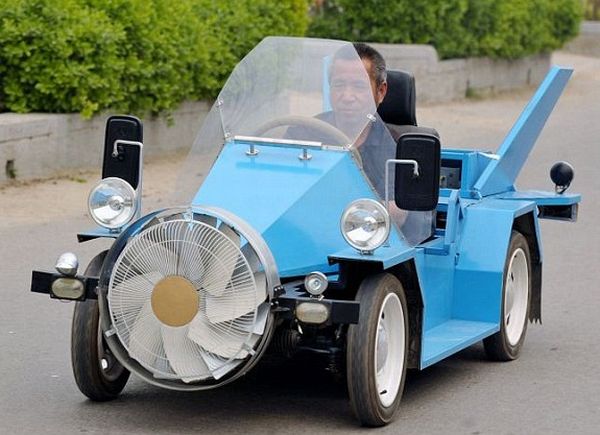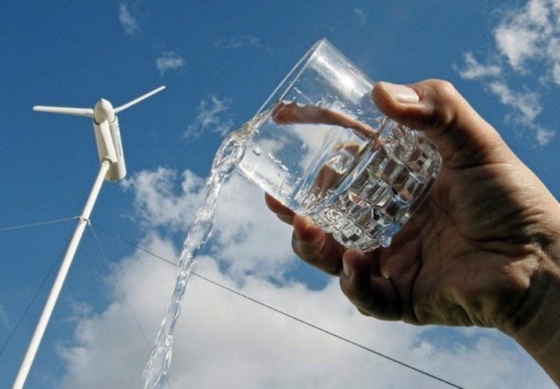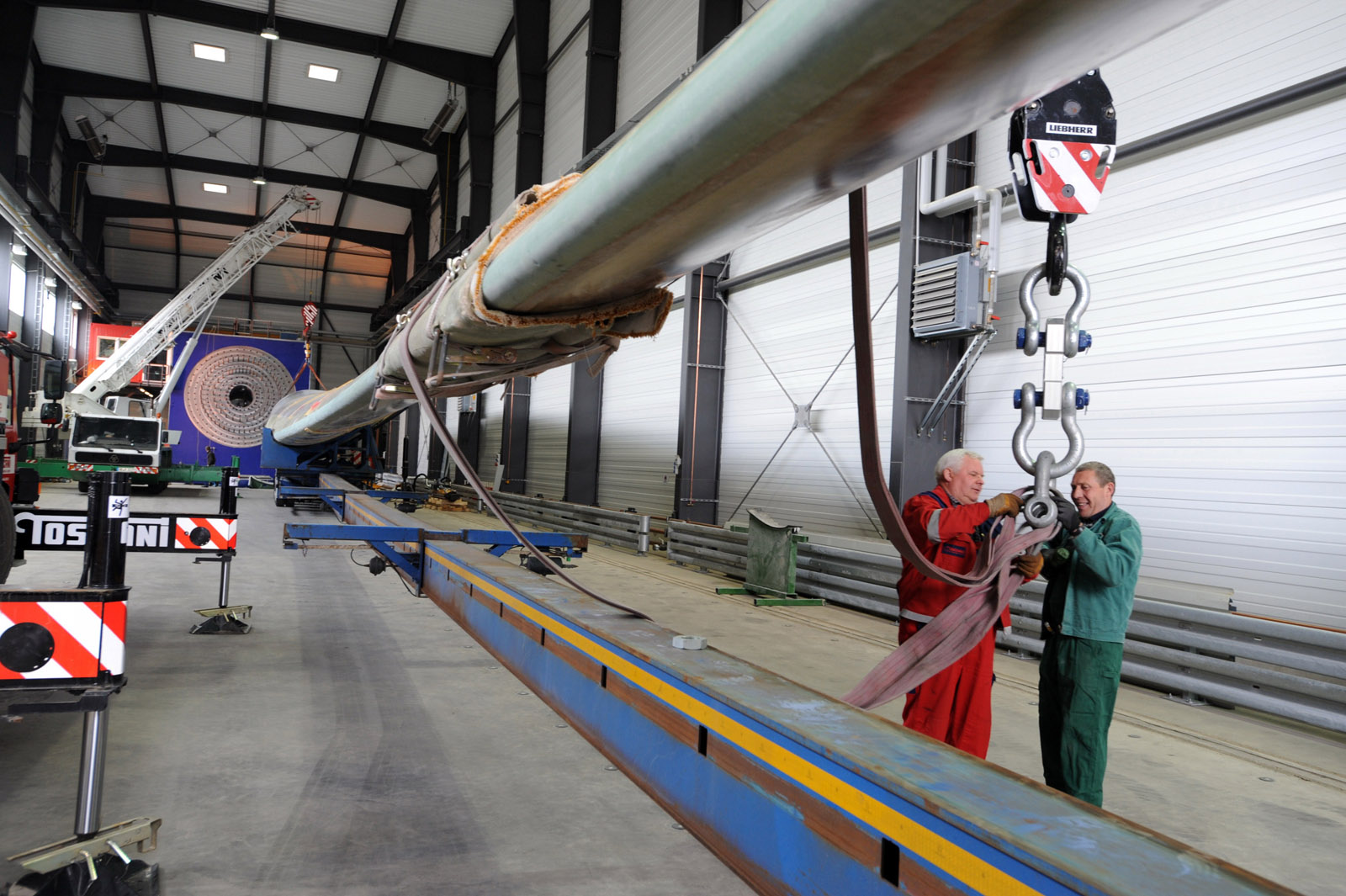
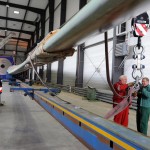 Wind turbines are growing bigger and bigger – the diameter of their rotor blades could soon reach 180 meters. But that creates a need for larger test rigs capable of accommodating the blades for load testing.
Wind turbines are growing bigger and bigger – the diameter of their rotor blades could soon reach 180 meters. But that creates a need for larger test rigs capable of accommodating the blades for load testing.
One of the largest-ever experimental test rigs, for blades measuring up to 90 meters in length, will shortly go into operation.
Only when you are standing beside a wind turbine can you appreciate the immense size of the wind turbine and its rotor blades. The largest wind turbines operating in the world today have rotor blades over 60 meters long – roughly equivalent to three truck-and-trailer units end-to-end.
Within the next ten years, manufacturers of high-output wind turbines for offshore wind farms plan to produce blades up to 90 meters long. The prototypes of these new blades have to be tested and certified before they can go into production, and that requires equally as large testing facilities.
The Fraunhofer Institute for Wind Energy and Energy System Technology (IWES) in Bremerhaven is preparing for these outsized rotor blades. In early summer IWES will be inaugurating a new facility with the capability of testing rotor blades up to 90 meters long. The central feature of the new test facility will be a tiltable 1000 metric tons steel and reinforced concrete mounting block. Hydraulic cylinders used to tilt the block and additional cylinders to load the blade will allow the IWES engineers to bend a rotor blade as easily as a finger to a blade of grass.
Preparations for testing begin by firmly mounting the flange of the rotor blade to the tilt block while the tip of the rotor blade projects upwards at a slight angle. Loading cables are attached at various locations along the blade and to hydraulic cylinders mounted on the floor. When all the cables and hydraulic cylinders are in place, the loading and tilting are initiated. As the tilt block is rotated and the tip of the blade begins to move upward, the rotor blade bends as its upward movement is counteracted by the loading cables pulling downwards. This unique testing setup allows for the blade tip of 90 meter blades to be bent through a distance of 25 meters.
The IWES researchers and engineers will be building upon their prior rotor blade testing experience with the new 90 meter testing facility. A test facility for rotor blades up to 70 meters long was opened at IWES in Bremerhaven in 2009, but it is not equipped with a tiltable mounting block. “The big advantage of the hydraulic tiltable mounting block is that it allows us to set up the ideal configuration for conducting tests with high precision in a minimum amount of time,” says Falko Bürkner, who leads the rotor-blade testing team at IWES.
This is especially important when testing the blades under extreme conditions, which involves subjecting the blades to the maximum theoretical loading it has been designed to withstand, i.e. 100% of the design load. This is always an anxious moment for the manufacturer: are our calculations accurate, is the structure robust enough?
The new test facility is not solely devoted to extreme load testing, but is also outfitted to simulate the cyclic forces acting on the rotor blades as they rotate due to the force of the wind. The wind and in turn rotation of the turbine causes constantly changing forces to act on the carbon or glass fiber reinforced materials of the rotor blades. “There is no other engineered rotating system in which the materials must support so many changes in the load parameters,” says Bürkner.
This fatigue loading is simulated in the new facility by a hydraulic cylinder which alternately pushes and pulls on the blade, causing it to vibrate at its horizontal and/or vertical resonant frequencies. A full series of extreme load and endurance tests takes around four months to complete.
During this time, the blade is subjected to the same loads that it would normally have to withstand in 20 years of operation. Bürkner is confident that the new facilities will enable the institute to continue its mission well into the future. “We have a full schedule for the next twelve months – and that is even before the new test hall opens on June 9, 2011.” IWES experts will be present at the Hannover Messe on April 4-8, 2011 (Hall 27, Stand H 24) to present a 3-D film of their biaxial rotor-blade testing and provide information for other new testing options. An open day for members of the public will be held at the new rotor-blade test center on June 11, 2011.

